The New Gastronome
Uplifting Food Communities
in Kenya, Uganda, and Tanzania
by Francesco Anastasi
by Francesco Anastasi
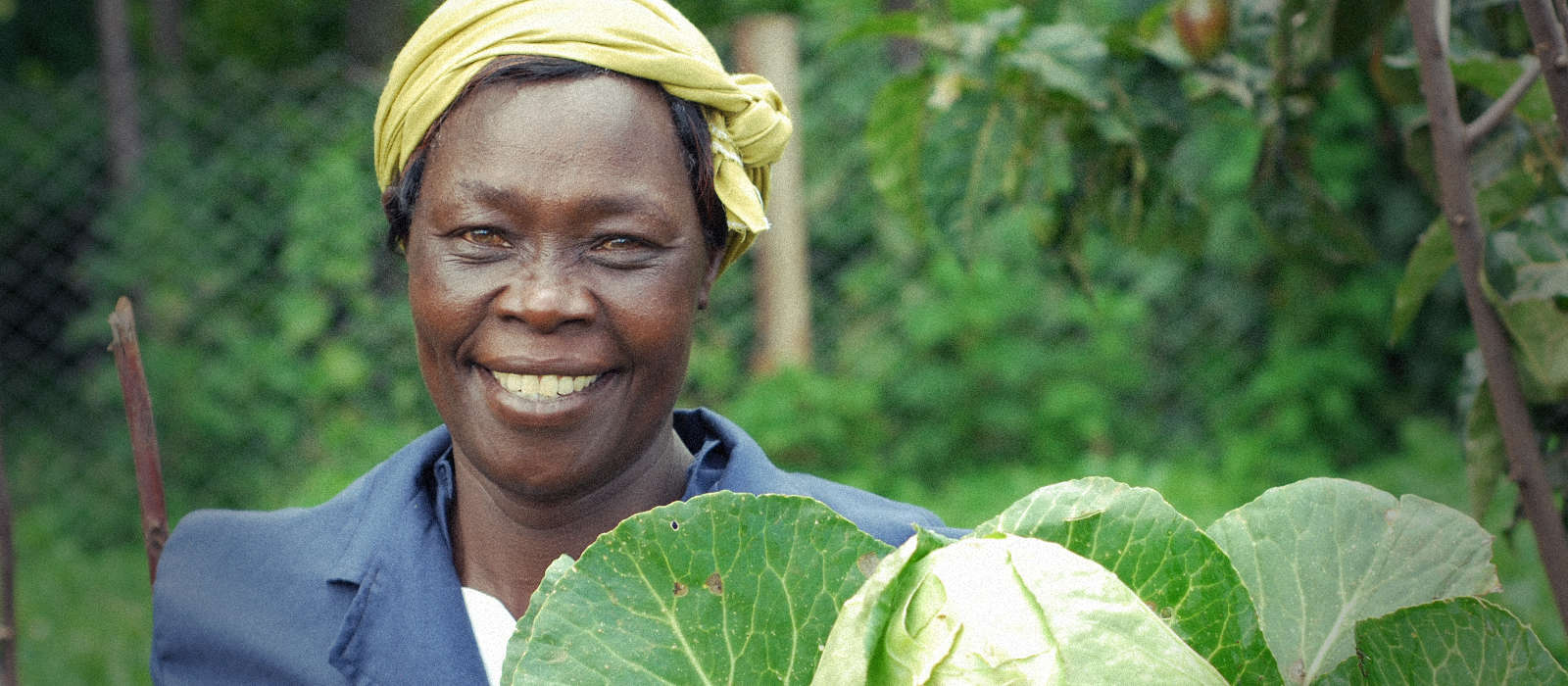
During my last trip to Africa, I learned an important lesson about the meaning of community and the role that many inspiring people play in making it stronger and maintaining it. Mrs. Mwangi is the perfect example of this. By helping other ladies build new gardens and new cultivations as a source of income for their families, she epitomizes what the power of being part of a community can do to strengthen and enrich people’s lives. This is what this compilation of photos is all about.
I hope that these stories make you feel a bit of what I felt and experienced during my visit to these wonderful countries.
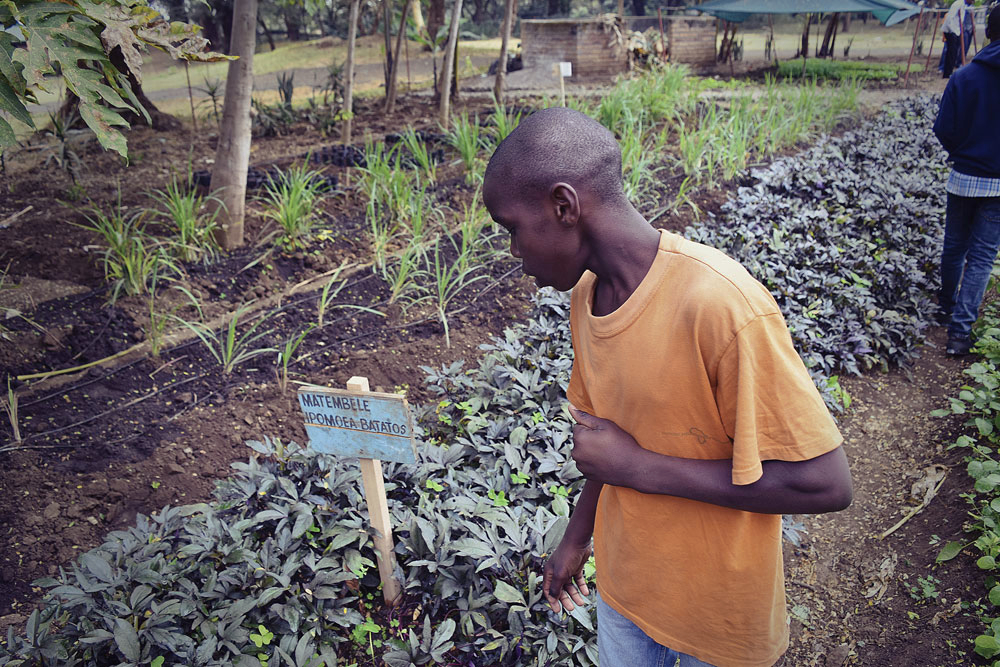
Mubarak, known as “Mr. Slow Food, is a true young leader of the Watoto Foundation community, in Arusha, Tanzania. He is just 15 years old, but he acts like a grown man. His dream is to communicate the real value of food and change the world, thanks to his passion and his knowledge about local plants.
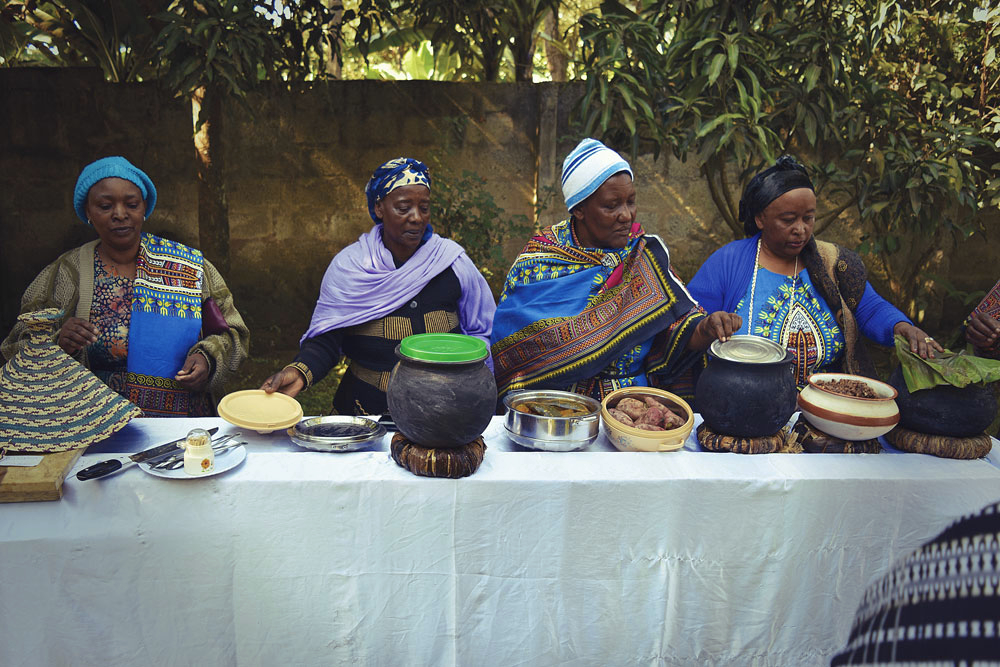
Traditional food made by a community of women in Arusha District, Tanzania. Once again, gastronomy is WOMAN.
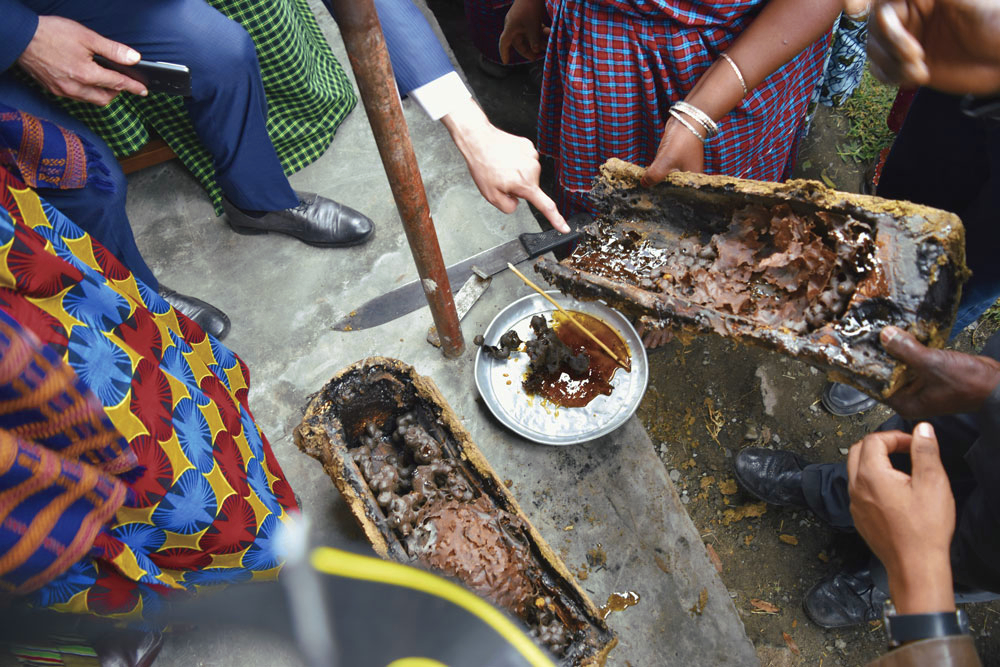
The Slow Food Presidium of Nyori Honey is produ- ced by the Umangu community in Arusha, Tanzania. Thanks to its incredible nutritional value, this honey, with great acidity and low sweetness, has an important role in the diet of HIV positive people. It’s not just a source of natural sugar, it’s life.
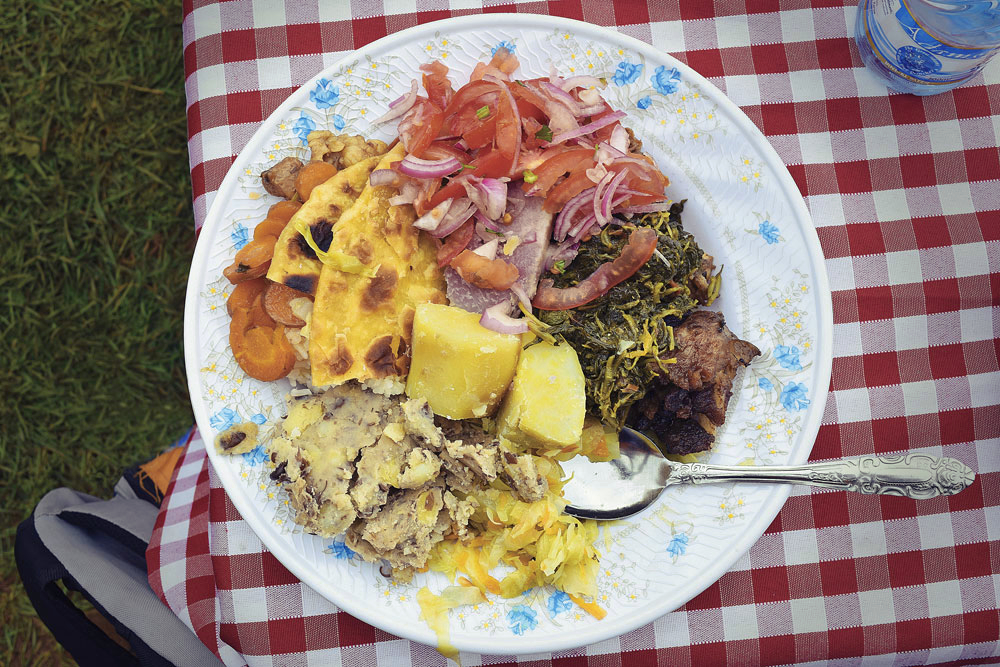
It is not another normal day. You can say that for the small piece of meat on my plate. It’s a representation of the traditional local food of Nakuru, Kenya.
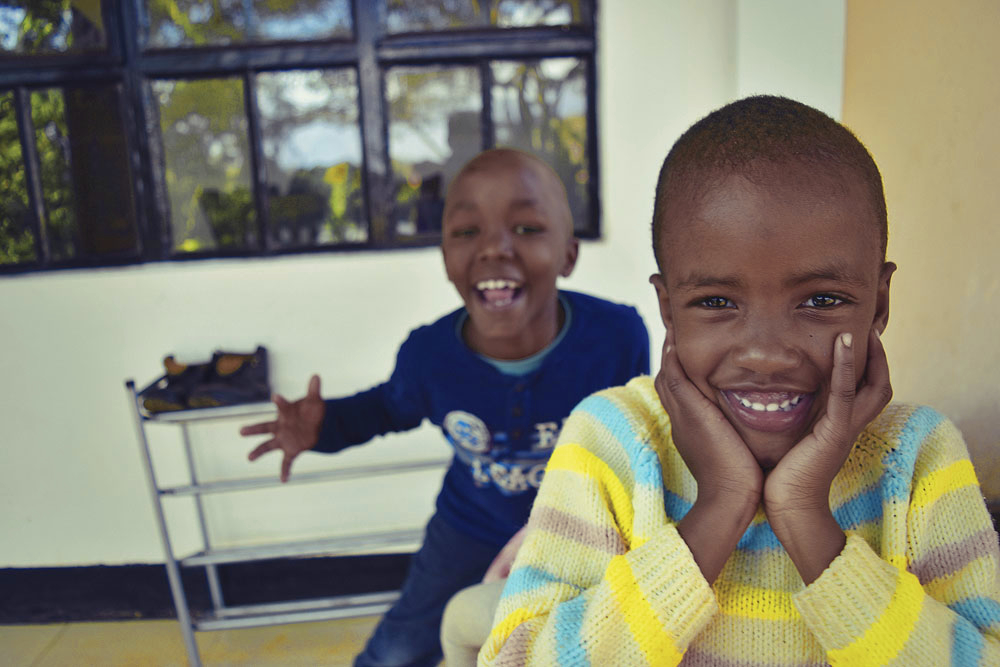
Twenty children live In Santa Lucia orphanage, in Tanzania, and 17 of them are HIV positive. Even though lack of water makes it difficult for the automatic pro- duction of food, which is important for their nutritional needs, they keep smiling.
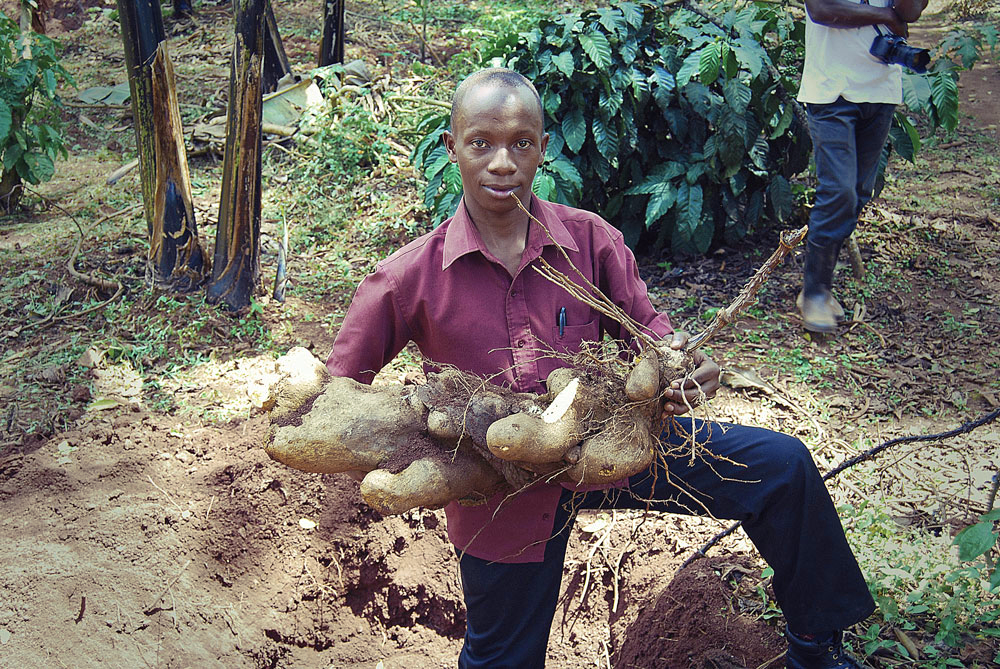
Indigenous tubers are the perfect example of food sovereignty in Uganda. The bigger the piece of tuber you plant, the bigger the tubers you collect will be. You can cut a small piece and leave the rest in the soil, and always have a source of food —even in the worst or driest season.
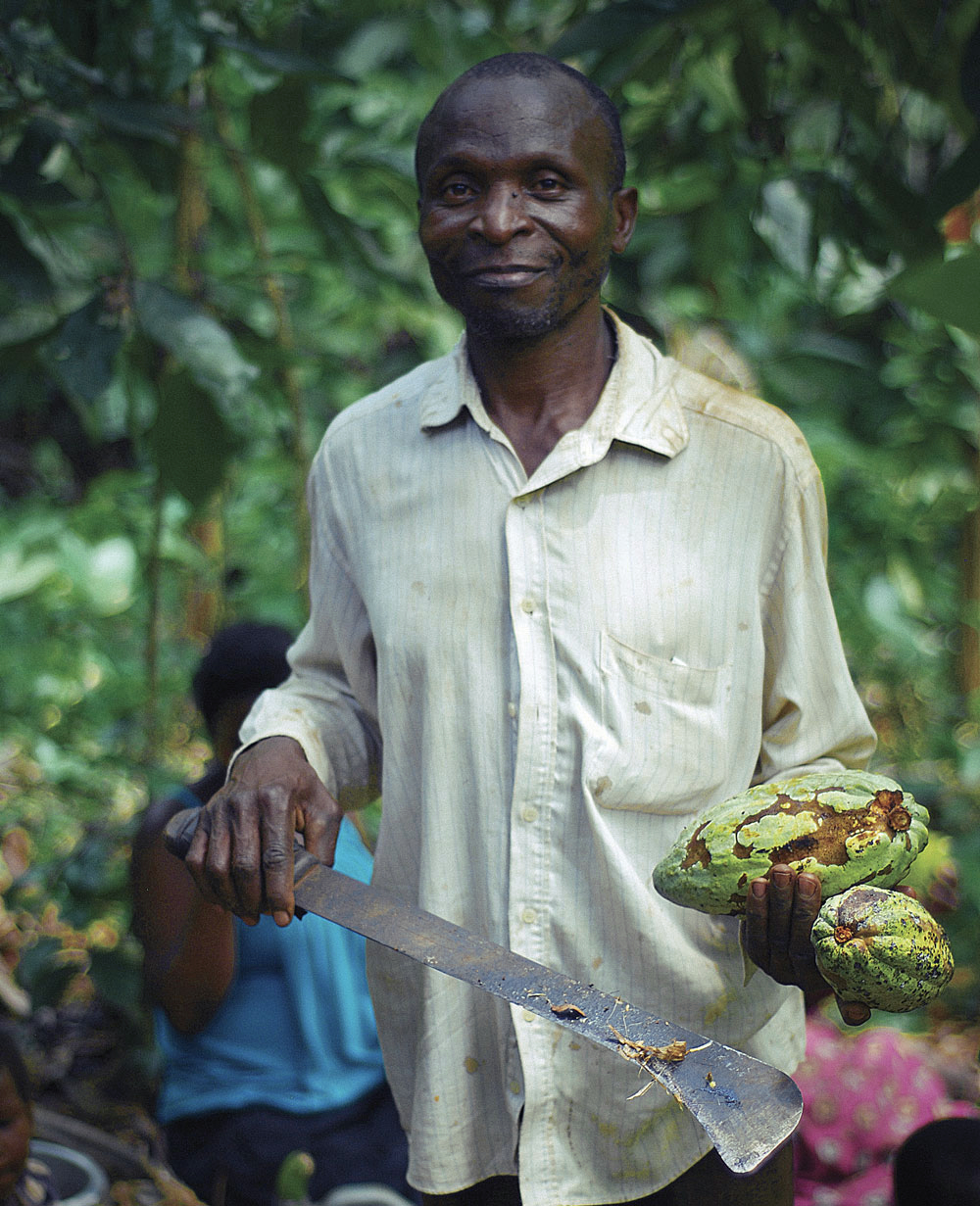
In Nkakwa Masuga village at the Bo.co.va.co community in Central Uganda, Mr. Joseph Kkonde lives with his family at 500mt altitude in front of Lake Victoria. Every day, he goes down and up hill to what he calls “his office”, where he cultivates banana, coffee, vanilla and cacao. He is a real example of “resistance” against land grabbing.
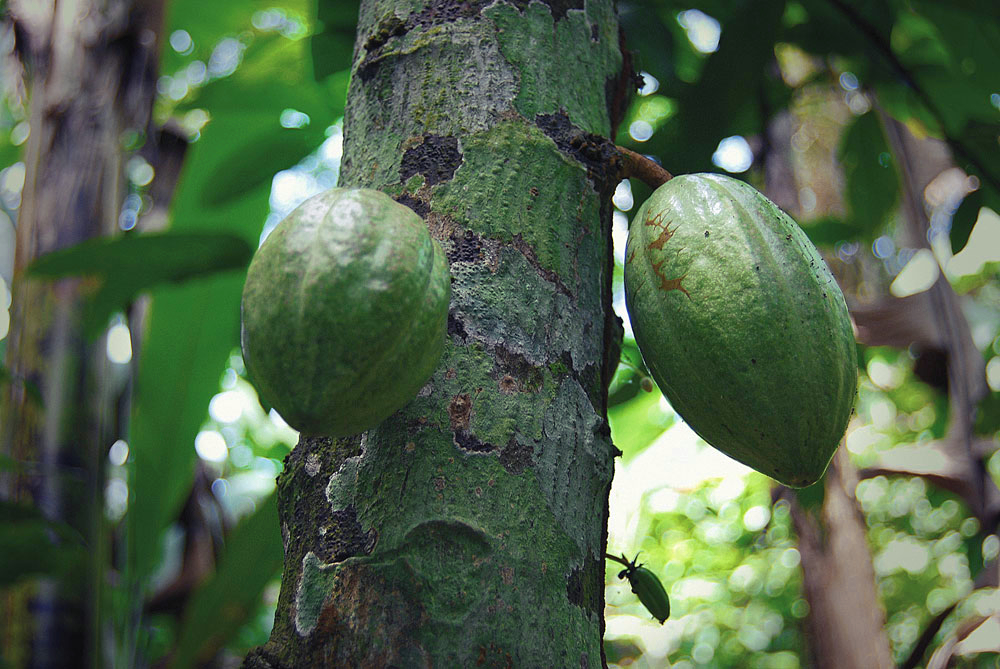
Mr. Khonde says, “My buyer always tells me to cut down these trees because they are not enough producti- ve, but my father planted them 50 years ago and I just can’t do that”.
For me, this is a new definition of fine African cocoa.
 Mrs. Mwangi and the author.
Mrs. Mwangi and the author.